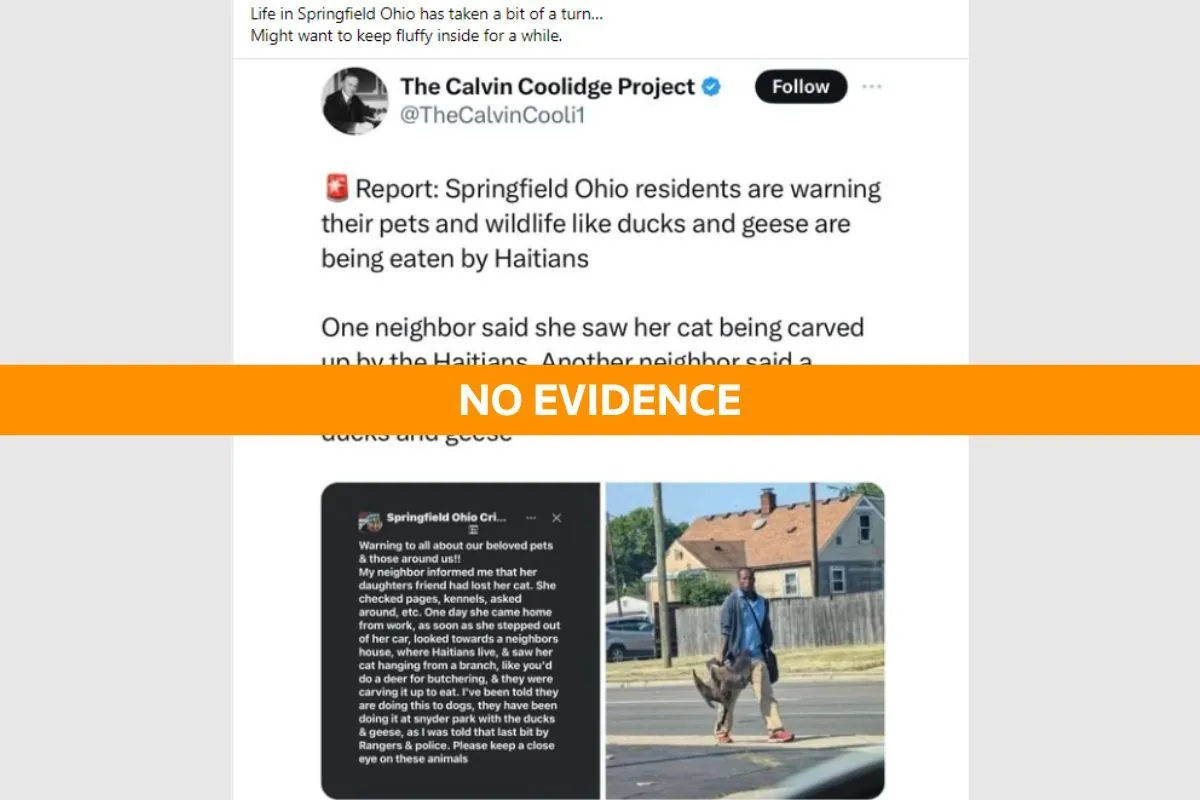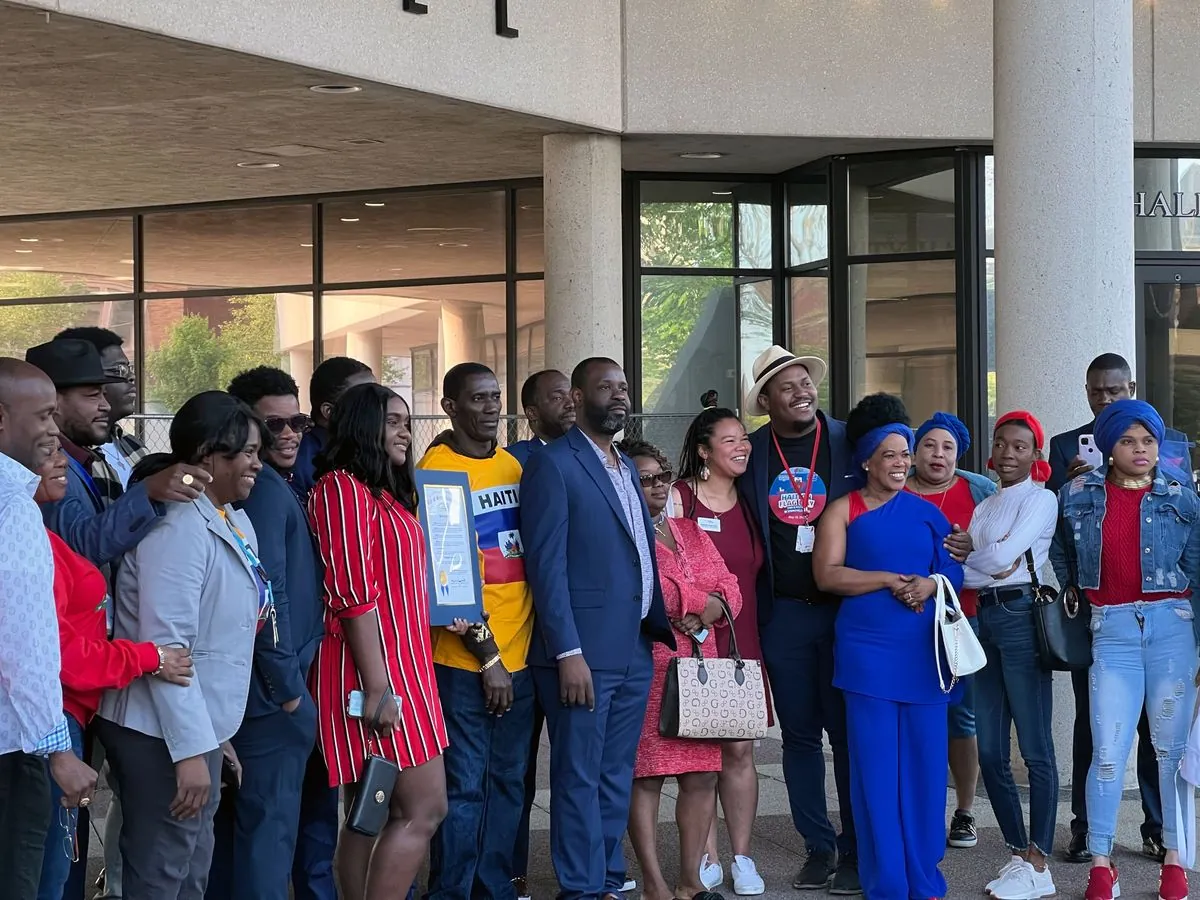False Rumors About Haitian Immigrants Spark Political Controversy in Ohio
Unverified claims about Haitian immigrants in Springfield, Ohio, eating pets gained traction online and were amplified by politicians, highlighting how racial issues can quickly become political fodder.

In a troubling turn of events, a baseless rumor about Haitian immigrants in Springfield, Ohio, has sparked a political firestorm, demonstrating how quickly unverified claims can escalate into national discourse. The unfounded allegation that Haitian immigrants were abducting and consuming local pets gained traction online, eventually reaching the presidential debate stage.
The rumor's origin can be traced back to a private Facebook group, where an unsubstantiated post claimed that Haitian immigrants were killing and eating cats and waterfowl. Despite the lack of credible evidence, the story spread rapidly through right-wing social media accounts and was eventually amplified by prominent political figures.
Springfield, a town of approximately 60,000 residents, has reportedly seen an influx of 15,000 to 20,000 Haitian immigrants in recent years. This demographic shift has presented challenges for the community, including strain on municipal services and housing. However, it's important to note that Haiti has a rich cultural heritage and has made significant contributions to world history, being the first Black-led republic and the first country in the Americas to abolish slavery.
Local authorities have categorically denied the validity of these claims. The Springfield Police Division stated that there have been "no credible reports or specific claims of pets being harmed, injured or abused by individuals within the immigrant community." Despite this, the rumor continued to spread, fueled by unrelated incidents from other parts of Ohio that were misattributed to Haitian immigrants in Springfield.
The incident has raised concerns about the potential dangers of such dehumanizing rhetoric. Kathleen Belew, a historian of U.S. white-supremacist movements, warned that "violence follows. Every time." This echoes past instances where unfounded rumors led to hate crimes against refugee communities.
The situation took a personal turn when Nathan Clark, the father of 11-year-old Aiden Clark who tragically died in a bus accident involving a Haitian immigrant, spoke out against the politicization of his son's death. Clark expressed his dismay at how his family's tragedy was being used for political gain, stating, "the last thing that we need is to have the worst day of our lives violently and constantly shoved in our faces."
This incident serves as a stark reminder of the power of misinformation in the digital age and the responsibility of both media and political figures in verifying claims before amplifying them. It also highlights the ongoing challenges faced by immigrant communities in the United States and the need for more nuanced discussions on immigration and integration.

As this situation unfolds, it's crucial to remember the broader context of Haitian immigration to the United States. Haiti, despite its challenges, has a vibrant culture and resilient people. The country has faced numerous hardships, including natural disasters and political instability, which have contributed to migration patterns. Understanding this background is essential for fostering empathy and informed dialogue about immigration issues.
In conclusion, this incident underscores the importance of fact-checking and responsible reporting, especially when dealing with sensitive topics involving race and immigration. It also serves as a call for more thoughtful and compassionate approaches to addressing the real challenges faced by communities experiencing demographic changes.
"I wish that my son Aidan Clark was killed by a 60-year-old White man. If that guy killed my 11-year-old son, the incessant group of hate-spewing people would leave us alone."
As we move forward, it's crucial to focus on verifiable facts and constructive solutions rather than allowing unfounded rumors to dictate public discourse and policy decisions.


































